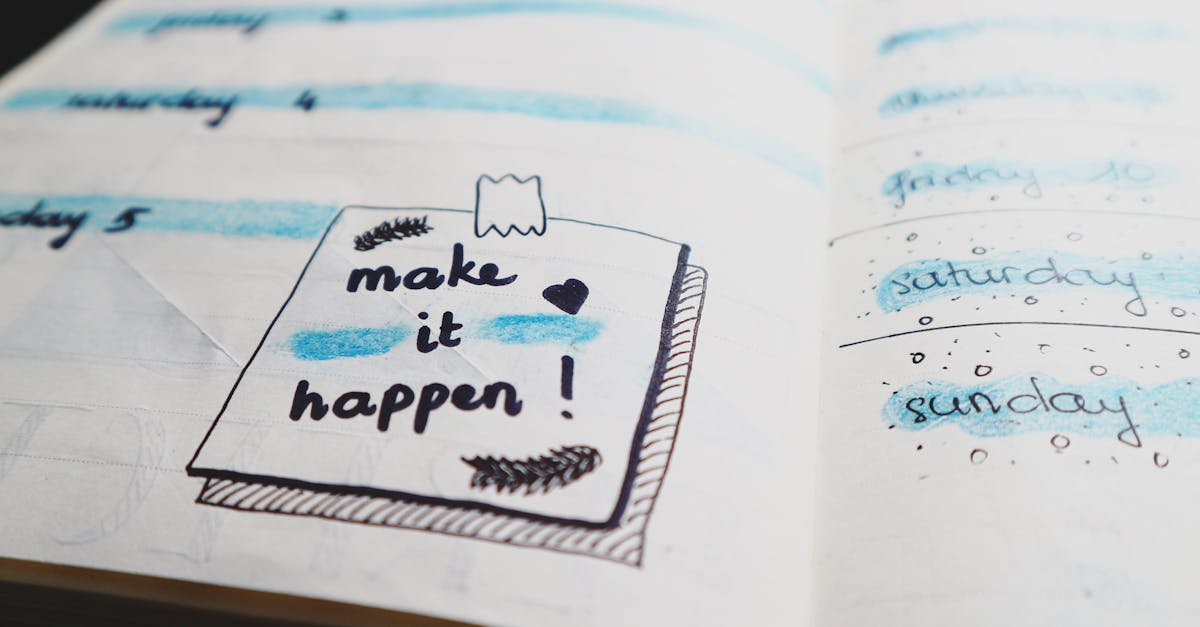“`html
Unleash your professional potential through personal development.
Behavioral skills are the foundation of a successful career.
Investing in yourself paves the way for unmatched opportunities.
Cultivating your soft skills allows you to stand out in the job market. By honing your interpersonal skills, you enhance your professional interactions. This proactive approach fosters your advancement and personal growth within your organization. Discover how to maximize your impact at work.

Why is personal development essential for professional success
Personal development is a fundamental lever for achieving professional success. By investing in personal growth, one not only improves technical skills but also interpersonal capabilities, which are essential in a competitive work environment. This ongoing process allows for better self-awareness, identifying strengths and weaknesses, and setting up strategies to overcome obstacles.
In a constantly evolving world, standing out requires continuous adaptation and a willingness for progression. Personal development encourages the acquisition of soft skills such as communication, time management, and leadership, which are increasingly sought after by employers. These behavioral skills are crucial for working effectively in teams, solving complex problems, and adapting to rapid market changes.
For example, Céline Mars’ story perfectly illustrates how personal development coaching can transform a career. Céline was able to identify her deep aspirations and develop her career management skills, allowing her to climb the professional ladder with confidence and determination.
How does the development of soft skills impact your career?
Soft skills play a decisive role in professional evolution. Unlike technical skills, they primarily concern relational abilities and personal management. Developing these skills leads to improved communication, conflict resolution, and the ability to work in teams.
According to a LinkedIn study, 92% of recruiters believe that soft skills are as important, if not more so, than technical skills. These skills facilitate the creation of a harmonious and productive work environment, essential for project success and job satisfaction. Leadership and critical thinking are particularly valued as they enable guiding teams towards common goals and making informed decisions.
By developing your soft skills, you not only improve your professional interactions but also your adaptability in the face of challenges. This translates to greater efficiency in daily tasks and a faster progression in your career. To delve deeper into this topic, check out our article on the classics of personal development that are a must-read.
What are the main personal development tools for professional growth?
To promote effective professional growth, several personal development tools can be utilized. Among them, coaching, training, and seminars are essential. These methods allow for acquiring new skills, refining strategies, and boosting self-confidence.
Individual coaching, for example, offers personalized support to identify professional objectives and set up an appropriate action plan. Guillaume Moubeche’s ascent is an inspiring case where strategic coaching combined personal development and professional success.
Moreover, tools like the MBTI (Myers-Briggs Type Indicator) help to better understand one’s personality and how it influences professional interactions. Discover how personal development and growth through the MBTI can be a major asset for your career.
How to measure the impact of personal development on your professional success?
Assessing the impact of personal development on professional success requires defining clear indicators and tracking progress made. One of the most effective ways is to set SMART goals (specific, measurable, achievable, realistic, time-bound) and regularly reevaluate them.
Another key indicator is the increase in performance at work. This can translate into improved results, better time management, or an enhanced ability to solve problems. Constructive feedback from colleagues and supervisors can also serve as a qualitative measure of your progress.
Furthermore, personal and professional well-being, such as maintaining a good work-life balance, is an important indicator of the effectiveness of personal development. By adopting stress management techniques and improving your psychological balance, you can observe a direct positive impact on your productivity and job satisfaction.
Case studies: success stories through personal development
Testimonials from individuals who have benefited from personal development perfectly illustrate its impact on professional success. Take the inspiring example of Fanny Lecoq, who transformed her career through personal development coaching focused on leadership and team management. Fanny was able to identify her strengths, improve her communication, and enhance her ability to motivate her colleagues, which led to exceptional performance from her team.
Similarly, Céline Mars’ journey demonstrates how personalized support can help overcome professional challenges and seize career opportunities. These examples show that personal development is not just an individual improvement, but it has positive repercussions on the entire work environment.
Another notable testimonial is that of Guillaume Moubeche, whose professional ascent is the result of a well-defined personal development strategy. By combining ongoing training and the development of his soft skills, Guillaume was able to position himself as an expert in strategy and personal growth, thus opening many doors in his field.
What are the key steps to integrate personal development into your career?
Integrating personal development into your professional journey rests on several key steps. The first is to assess your needs and clearly define your objectives. This introspection allows you to determine which skills you wish to develop and how they can contribute to your professional success.
Next, it is essential to establish a realistic and structured action plan. This may include participating in trainings, coaching sessions, or reading specialized books on the subject. For instance, discovering the classics of personal development that are a must-read can provide valuable tools for your progression.
Monitoring and adjustment
Tracking your progress is an indispensable step to ensure the effectiveness of your approach. Use tracking tools such as journals or dedicated applications to measure your advancements and adjust your plan if necessary. Also, let yourself be guided by professional coaching to receive objective and constructive feedback.
What are the long-term benefits of personal development on your career?
The benefits of personal development on your career are multiple and lasting. By enhancing your skills and boosting your self-confidence, you increase your value in the job market. This translates into better job opportunities, promotions, and greater professional satisfaction.
Moreover, personal development contributes to better stress management and a more harmonious work-life balance. This reduces the risks of burnout and improves your overall quality of life, which is essential for maintaining high productivity in the long term.
Investing in your personal development also helps to cultivate a growth mindset, making you more resilient to challenges and more open to new opportunities. This mindset fosters continuous adaptation and a constant evolution of your career, allowing you to remain relevant and competitive in your field.
Finally, personal development allows you to build strong professional relationships, essential for networking and fruitful collaborations. Skills in communication and empathy facilitate interactions with colleagues, clients, and partners, thus strengthening your professional network and prospects for success.
How does personal development foster innovation and creativity at work?
Personal development plays a crucial role in stimulating innovation and creativity within companies. By fostering better self-knowledge and encouraging critical thinking, personal development allows individuals to step outside traditional thought patterns and explore new ideas.
Personal development training and workshops provide tools and techniques to stimulate creativity, such as brainstorming, innovative problem-solving, or time management to free the mind. These methods help generate innovative solutions and improve existing processes, contributing to the company’s competitiveness.
Moreover, by strengthening self-confidence and encouraging initiative, personal development encourages employees to propose new ideas and take initiative. This creates a dynamic work environment where innovation is valued and rewarded.
For example, Fanny Lecoq’s experience in team coaching shows how leadership inspired by personal development can foster a culture of innovation, where every team member feels encouraged to contribute creatively.
What roles do self-confidence and self-esteem play in professional success?
Self-confidence and self-esteem are essential pillars of professional success. They enable individuals to take initiative, overcome obstacles, and persist in the face of challenges. High self-confidence also improves communication and interaction with others, thus facilitating collaboration and leadership.
Personal development helps to strengthen self-confidence by encouraging self-reflection and identifying strengths and areas for improvement. Exercises in visualization and positive affirmation can also be integrated into a coaching approach to enhance self-esteem.
Good self-esteem contributes to better stress management and a positive attitude towards professional challenges. It also allows for setting ambitious goals and adopting a proactive approach in seeking new opportunities. By cultivating self-confidence, professionals are better prepared to seize promotion opportunities and adapt to the changing demands of their positions.
For example, according to personal development and growth through the MBTI, understanding one’s personality and internal mechanisms can greatly improve self-confidence and personal effectiveness, thus contributing to success in the chosen career.

“`html
Frequently Asked Questions
Q : What is personal development?
A : Personal development is a continuous process aimed at improving self-knowledge, skills, and quality of life. It allows individuals to define their values, needs, and aspirations to better orient themselves both professionally and personally.
Q : How does personal development contribute to professional success?
A : By investing in personal development, one enhances stress management, self-confidence, and time management skills. These elements are essential for thriving in a competitive work environment and achieving professional goals.
Q : What are the key skills developed through personal development?
A : Personal development allows for strengthening self-confidence, improving time management, mastering conflict management, and developing leadership skills. These skills are crucial for a successful career.
Q : Why are soft skills important in the professional world?
A : Soft skills complement technical skills by fostering effective communication, problem-solving, and adaptability. They are highly valued by employers as they contribute to a harmonious work environment and better collaboration.
Q : How to develop soft skills?
A : Developing soft skills involves continuous training, professional coaching, and participating in workshops or seminars. Regular practice and receiving constructive feedback also help to strengthen them.
Q : What are the keys to personal development?
A : The keys include self-reflection for better self-understanding, continuous training to acquire new skills, networking to surround oneself with inspiring professionals, and adaptability to changes.
Q : How to put personal development into practice for professional success?
A : Putting into practice involves applying soft skills daily, such as using effective communication during meetings, adopting good time management, and setting clear goals. Continuing to learn and train is also crucial to maintain high performance.
Q : What are the advantages of personal development for a career?
A : Advantages include increased performance, professional fulfillment, career progression, assertive leadership, and better adaptability to new opportunities and challenges.
Q : How to find a balance between professional and personal life through personal development?
A : Personal development helps identify and prioritize personal and professional needs, thus allowing for better time management and a reduction in stress. This fosters a healthy balance between both spheres.
Q : How does personal development improve performance at work?
A : By developing soft skills and strengthening self-confidence, personal development allows for better task management, effective communication, and increased adaptability, resulting in optimized performance.












